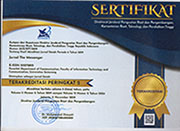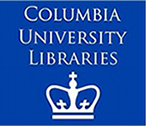Social Media Managers’ and Journalists’ Role in Maintaining Local Wisdom in A Mediatized Rural Area
Abstract
Introduction: This study explores on how social media managers and journalists in Tulungagung narrating ‘Aksi 212’ (Action 212) protests. Social media managers and journalists are the actors who have an active role in producing, constructing and sharing information. The solidarity protests and the news about ‘Aksi 212’ had appeared in various media and regions in conflicting narratives. However, there was no news nor any solidarity protest occurred in Tulungagung.
Methods: This study applies digital ethnography to examine five media that keep updating their posts and interview six journalists and media managers who have a large number of followers in Tulungagung.
Findings: The social media managers and journalists avoid any information that may bring a potential conflict, eventhough it becomes a national issue. On the date of the ‘Aksi 212’, the @radar_tulungagung and @hits_tulungagung accounts did not share any posts. Meanwhile, the @jtv_tulungagung, @kacamata_tulungagung and @tulungagung_sparkling uploaded local news. The social media managers and journalists provide information in accordance with the local wisdom--the harmony and togetherness--as they realize the legal and social consequences.
Originality: The previous mediatization studies focus on the role of the media as institutions and examine the ‘Aksi 212’ in the context of political conflict. This study examines the ‘Aksi 212’ by using the socio-constructivist approach to understand the mediatization from the perspective of the rural society, that upholds the local wisdom in their media engagement and observes the society’s practice in utilizing media.Keywords
Full Text:
PDFReferences
Ampuja, M., Koivisto, J., & Väliverronen, E. (2014). Strong and Weak Forms of Mediatization Theory: A Critical Review. Nordicom Review, 35(S1), 111–124. https://doi.org/10.2478/nor-2014-0107
Ardiyanti, D. (2019). Dampak Dana Remitansi Tenaga Kerja Indonesia bagi kemandirian Ekonomi Keluarga dan Perekonomian Masyarakat Purworejo Ngunut Tulungagung dalam Perspektif Ekonomi Islam [Institut Agama Islam Negeri (IAIN) Tulungagung]. http://repo.iain-tulungagung.ac.id/id/eprint/10527
Averbeck-Lietz, S. (2013). French and Latin American perspectives on mediation and mediatization: A lecture note from Germany. Empedocles: European Journal for the Philosophy of Communication, 3(2), 177–195. https://doi.org/10.1386/ejpc.3.2.177_1
Berger, P. L., & Luckmann, T. (1967). The Social Construction of Reality: A Treatise in the Sociology of Knowledge. Anchor Books.
Block, E. (2013). A Culturalist Approach to the Concept of the Mediatization of Politics: The Age of “Media Hegemony.” Communication Theory, 23(3), 259–278. http://doi.org/10.1111/comt.12016
Blumler, J. G., & Esser, F. (2019). Mediatization as a combination of push and pull forces: Examples during the 2015 UK general election campaign. Journalism, 20(7), 855–872. https://doi.org/10.1177/1464884918754850
Bolin, G. (2014). Media Generations: Objective and Subjective Media Landscapes and Nostalgia Among Generations of Media Users. Södertörn University.
Canella, G. (2022). Activist Media: Documenting Movements and Networked Solidarity. Rutgers University Press.
Castells, M. (2022). The Network Society Revisited. American Behavioral Scientist, 0(0). https://doi.org/10.1177/00027642221092803
Couldry, N., & Hepp, A. (2013). Conceptualizing mediatization: Contexts, traditions, arguments. Communication Theory, 23(3), 191–202. https://doi.org/10.1111/comt.12019
Cui, D. (2016). Beyond “connected presence”: Multimedia mobile instant messaging in close relationship management. Mobile Media and Communication, 4(1), 19–36. https://doi.org/10.1177/2050157915583925
Deacon, D., & Stanyer, J. (2014). Mediatization: Key Concept or Conceptual Bandwagon? Media Culture Society, 36(7), 1032–1044. https://doi.org/10.1177/0163443714542218
Driessens, O., & Hjarvard, S. (2017). Introduction: Situating Dynamics of Mediatization. In Dynamics Of Mediatization (pp. 1–8). Basingstoke. https://doi.org/10.1007/978-3-319-62983-4
Ekström, M., Fornäs, J., Jansson, A., & Jerslev, A. (2016). Three tasks for mediatization research: contributions to an open agenda. Media, Culture & Society, 38(7). http://doi.org/10.1177/0163443716664857
Encheva, K., Driessens, O., & Verstraeten, H. (2013). The Mediatization of Deviant Subcultures: an Analysis of the Media-related Practices of Graffiti Writers and Skaters. MedieKultur: Journal of Media and Communication Research, 29(54), 18. https://doi.org/10.7146/mediekultur.v29i54.7349
Eriksen, T. H. (2006). Nations in cyberspace. Short Version of the 2006 Ernest Geller Lecture, London School of Economics, 27 March. http://tamilnation.co/selfdetermination/nation/eriksen_nationscyberspace.pdf
Fakhruroji, M. (2015). Mediatization of religion in “texting culture”: self-help religion and the shifting of religious authority. Indonesian Journal of Islam and Muslim Societies, 5(2), 231. https://doi.org/10.18326/ijims.v5i2.231-254
Farrington, J., Williams, F., Ashmore, F., Philip, L., & Cottrill, C. (2017). The digital divide: Patterns, policy and scenarios for connecting the ‘final few’ in rural communities across Great Britain. Journal of Rural Studies, 54, 386–398. https://doi.org/10.1016/j.jrurstud.2016.12.002
Flew, T. (2017). The ‘Theory’ in media theory: The ‘Media-Centrism’ debate. Media Theory, 1(1), 43–56. https://eprints.qut.edu.au/112748/
Hampton, K. N., Robertson, C. T., Fernandez, L., Shin, I., & Bauer, J. M. (2021). How variation in internet access, digital skills, and media use are related to rural student outcomes: GPA, SAT, and educational aspirations. Telematics and Informatics, 63. https://doi.org/10.1016/j.tele.2021.101666
Hepp, A. (2012). Mediatization and the “molding force” of the media. Communications, 37(1), 1–28. https://doi.org/10.1515/commun-2012-0001
Hepp, A. (2016). Pioneer communities: collective actors in deep mediatisation. Media, Culture & Society, 38(6), 918–933. https://doi.org/10.1177/0163443716664484
Hepp, A., & Hasebrink, U. (2018). Researching Transforming Communications in Times of Deep Mediatization: A Figurational Approach. In A. Hepp, A. Breiter, & U. Hasebrink (Eds.), Communicative Figurations (Transforming Communications – Studies in Cross-Media Research). https://doi.org/10.1007/978-3-319-65584-0_2
Hepp, A., Hjarvard, S., & Lundby, K. (2015). Mediatization: theorizing the interplay between media, culture and society. Media, Culture and Society, 37(2), 314–324. https://doi.org/10.1177/0163443715573835
Hepp, A., & Krotz, F. (2014). Mediatized Worlds: Culture and Society in a Media Age. In Mediatized Worlds: Culture and Society in a Media Age. Palgrave Macmillan. https://doi.org/10.1057/9781137300355
Hjarvard, S. (2008). The mediatization of religion: A theory of the media as agents of religious change. In Yearbook of Film & Media Studies. Intellect Press.
Introna, L. D., & Nissenbaum, H. (2000). Shaping the web: Why the politics of search engines matters. Information Society, 16(3), 169–185. https://doi.org/10.1080/01972240050133634
J, H., & Hidayati, M. (2018). Religious Violence in the Indonesian Democratic Era. Al-Albab, 7(1), 3–16. https://doi.org/10.24260/alalbab.v7i1.935
Jacobson, J. (2020). You are a brand: social media managers’ personal branding and “the future audience.” Journal of Product and Brand Management, 29(6), 715–727. https://doi.org/10.1108/JPBM-03-2019-2299
Jansson, A. (2013). Mediatization and social space: Reconstructing mediatization for the transmedia age. Communication Theory, 23(3), 279–296. https://doi.org/10.1111/comt.12015
Jansson, A., Lövheim, M., Paasonen, S., & Sumiala, J. (2013). Social media: implications for everyday life, politics and human agency. Approaching Religion, 3(2), 26–37. https://doi.org/10.30664/ar.67514
Kambo, G., & Yani, A. A. (2021). Political Identity and Religious Prejudice in a Post-confict Society: A Case Study of Poso, Indonesia. Journal of Southwest Jiaotong University, 56(3), 26–36. https://doi.org/10.35741/issn.0258-2724.56.3.43
Kansong, U., Sunarwinadi, I. R., & Triputra, P. (2022). Religious Populism in Mainstream Media between Indonesia and India. Jurnal The Messenger, 14(1), 1. https://doi.org/10.26623/themessenger.v14i1.4193
Knoblauch, H. (2013). Communicative constructivism and mediatization. Communication Theory, 23(3), 297–315.
Krotz, F. (2007). The Meta-process of ‘mediatization’ as a Conceptual Frame. Global Media and Communication, 3, 256–260.
Krotz, F. (2009). Mediatization: A Concept with Which to Grasp Media and Societal Change. In K. Lundby (Ed.), Mediatization. Concept, Changes, Consequences. Peter Lang.
Krotz, F., & Hepp, A. (2013). A concretization of mediatization: How ‘mediatization works’ and why mediatized worlds are a helpful concept for empirical mediatization research. Empedocles: European Journal for the Philosophy of Communication, 3(2), 137–152. https://doi.org/10.1386/ejpc.3.2.137_1
Kurniawan, R. (2021). Analisis Strategi Pemasaran dan Persaingan pada Bisnis Warung Kopi Kekinian (Moderen) dan Warung Kopi Tradisional di Kabupaten Tulungagung [Institut Agama Islam Negeri Tulungagung]. http://repo.uinsatu.ac.id/22692/
Lekhanya, L. M. (2013). Cultural Influence On The Diffusion And Adoption Of Social Media Technologies By Entrepreneurs In Rural South Africa. International Business & Economics Research Journal (IBER), 12(12), 1563. https://doi.org/10.19030/iber.v12i12.8250
Lilleker, D. G. (2006). Mediatisation. In SAGE Key Concepts: Key Concepts in Political Communication. SAGE Publications Ltd.
Lim, M. (2017). Freedom to hate: social media, algorithmic enclaves, and the rise of tribal nationalism in Indonesia. Critical Asian Studies, 49(3), 411–427. https://doi.org/10.1080/14672715.2017.1341188
Livingstone, S. (2009). On the Mediation of Everything: Ica Presidential Address 2008. Journal of Communication, 59(1), 1–18. https://doi.org/10.1111/j.1460-2466.2008.01401.x
Lundby, K. (2014). Mediatization of Communications (Handbook of Communication Science). De Gruyter.
Lunt, P., & Livingstone, S. (2016). Is ‘mediatization’ the new paradigm for our field? A commentary on Deacon and Stanyer (2014, 2015) and Hepp, Hjarvard and Lundby (2015). Media, Culture and Society, 38(3), 462–470. https://doi.org/10.1177/0163443716631288
Madianou, M., & Miller, D. (2013). Polymedia: Towards a new theory of digital media in interpersonal communication. International Journal of Cultural Studies, 16(2), 169–187. https://doi.org/10.1177/1367877912452486
Manheim, E. (1933). Aufkl ̈arung und ̈offentliche Meinung: Studien zur Soziologie der ̈Offentlichkeit im 18 Jahrhundert. Frommann-Holzboog.
Mora-Rivera, J., & García-Mora, F. (2021). Internet access and poverty reduction: Evidence from rural and urban Mexico. Telecommunications Policy, 45(2). https://doi.org/10.1016/j.telpol.2020.102076
Murthy, D. (2008). Digital ethnography: An examination of the use of new technologies for social research. Sociology, 42(5), 837–855. https://doi.org/10.1177/0038038508094565
Ni’amah, L. U. (2018). Pemilih Muda, Sosial Media dan Partisipasi Pemilih Pada Pemilihan Kepala Daerah Tulungagung 2018. Al-I’lam: Jurnal Komunikasi Dan Penyiaran Islam, 2(1), 22–36.
Nurlaela, S., Hariadi, S. S., & Raya, A. B. (2020). The role of young farmers group in new media utilization for young horticultural agripreneurs in Yogyakarta special region, Indonesia. Humanities and Social Sciences Reviews, 8(3), 518–526. https://doi.org/10.18510/hssr.2020.8356
Olsen, R. K. (2021). The Value of Local News in the Digital Realm – Introducing the Integrated Value Creation Model. Digital Journalism, 9(6), 810–834. https://doi.org/10.1080/21670811.2021.1912623
Panuju, R., Susilo, D., & Sugihartati, R. (2018). A Strategy for Competitive Broadcasting - Radio Community Networking in Tulungagung, Indonesia. International Post-Graduate Conference on Media and Communication - IPCOMC, 467–472. https://doi.org/10.5220/0007331504670472
Patton, M. Q. (2002). Qualitative Research and Evaluation Methods (3rd ed.). Sage Publications. https://doi.org/10.1177/1035719X0300300213
Philip, L., & Williams, F. (2019). Remote rural home based businesses and digital inequalities: Understanding needs and expectations in a digitally underserved community. Journal of Rural Studies, 68, 306–318. https://doi.org/10.1016/j.jrurstud.2018.09.011
Purbo, O. W. (2017). Narrowing the Digital Divide. In E. Jurriens & R. Tapsell (Ed.), Narrowing the digital divide. (Digital In, pp. 75–92). ISEAS–Yusof Ishak Institute. https://doi.org/10.4018/9781591404798.ch015
Rahayu, D. N., Arif, A. I. M., & Fitriasari, N. (2022). Instagram Optimization as Hospital Digital Marketing Tool Optimalisasi Instagram sebagai Sarana Pemasaran Digital. Jurnal Kedokteran Brawijaya, September, 21776. https://jkb.ub.ac.id/index.php/jkb/article/view/3220
Sa’adah, N. (2016). Ajaran Aliran Kebatinan Perjalanan Kabupaten Tulungagung [Institut Agama Islam Negeri Tulungagung]. http://repo.uinsatu.ac.id/5737/
Santoso, B., & Djauhari, M. A. (2019). Indonesian 2019 General Election: Who Will Be The Future Leader? Global Media Journal, 17(32), 1–5.
Shawky, S., Kubacki, K., Dietrich, T., & Weaven, S. (2019). Using social media to create engagement: a social marketing review. Journal of Social Marketing, 9(2), 204–224. https://doi.org/10.1108/JSOCM-05-2018-0046
Sirpa, T. (2018). A Village Goes Mobile: Telephony, Mediation and Social Change in Rural India. Oxford University Press. https://doi.org/10.1093/oso/9780190630270.001.0001
Spash, C. L. (2014). Policy analysis: Empiricism, social construction and realism. Austrian Journal of Political Science, 43(4), 401–410. https://doi.org/10.15203/ozp.291.vol43iss4
Statistic Tulungagung Regency, (BPS). (2020). Tulungagung in Figures 2020. https://tulungagungkab.bps.go.id
Statistic Tulungagung Regency, (BPS). (2022). Tulungagung in Figures 2022. https://tulungagungkab.bps.go.id
Syafaah, D., & Ari, G. (2021). Strategi Komunikasi Akun Instagram Kacamatan Tulungagung Sebagai Media Informasi Masyarakat. Al-I’lam; Jurnal Komunikasi Dan Penyiaran Islam, 5(1), 22–31.
Tacchi, J. (2004). Researching Creative Applications of New Information and Communication Technologies. International Journal of Cultural Studies, 7(1), 91–103. https://doi.org/10.1177/1367877904040608
Taillon, B. J., Mueller, S. M., Kowalczyk, C. M., & Jones, D. N. (2020). Understanding the relationships between social media influencers and their followers: the moderating role of closeness. Journal of Product and Brand Management, 29(6), 767–782. https://doi.org/10.1108/JPBM-03-2019-2292
Ting-Toomey, S. (2005). Identity Negotiation theory: Crossing Cultural Boundaries. In Theorizing about Intercultural Communication (W. B. Gudy, pp. 211–233). SAGE Publications Ltd.
Tönnies, F. (2001). Community and Civil Society (Cambridge Texts in the History of Political Thought) (J. Harris (ed.)). Cambridge Univ. Press. https://doi.org/10.1017/CBO9780511816260
Tseng, S. F., & Hsieh, Y. P. (2015). The Implications of Networked Individualism for Social Participation: How Mobile Phone, E-mail, and IM Networks Afford Social Participation for Rural Residents in Taiwan. American Behavioral Scientist, 59(9), 1157–1172. https://doi.org/10.1177/0002764215580620
Vermeer, S., Trilling, D., Kruikemeier, S., & de Vreeese, C. (2020). Online News User Journeys: The Role of Social Media, News Websites, and Topics. Digital Journalism, 8(9), 1114–1141. https://doi.org/10.1080/21670811.2020.1767509
Wilczewski, M., Gut, A., & Gorbaniuk, O. (2017). The impact of individualism-collectivism orientation and communal orientation on employees’ attitudes toward intercultural communication: The case of chinese employees in an MNC. Journal of Intercultural Communication, 45. http://immi.se/intercultural
Wohn, D. Y., & Bowe, B. J. (2014). Crystallization: How social media facilitates social construction of reality. Proceedings of the ACM Conference on Computer Supported Cooperative Work, CSCW, February, 261–264. https://doi.org/10.1145/2556420.2556509
Woods, M. (2005). Rural Geography. Sage Publications.
Yudha, R. P. (2021). Selecting relationship and uploads: mediatisation studies on Indonesian migrant worker’s media engagement. Jurnal Studi Komunikasi (Indonesian Journal of Communications Studies), 5(3), 631–650. https://doi.org/10.25139/jsk.v5i3.3663
DOI: http://dx.doi.org/10.26623/themessenger.v14i2.5328
Refbacks
- There are currently no refbacks.
Copyright (c) 2022 Jurnal The Messenger
View My Stats [Jurnal The Messenger] is an International Scientific Journal, Published by the Department of Communication, Faculty of Information Technology and Communication, Universitas Semarang (Central Java, Indonesia). It is licensed under a Creative Commons Attribution 4.0 International License.



_11.jpg)




_BARCODE.jpg)
_BARCODE1.jpg)


5.png)










2.png)





